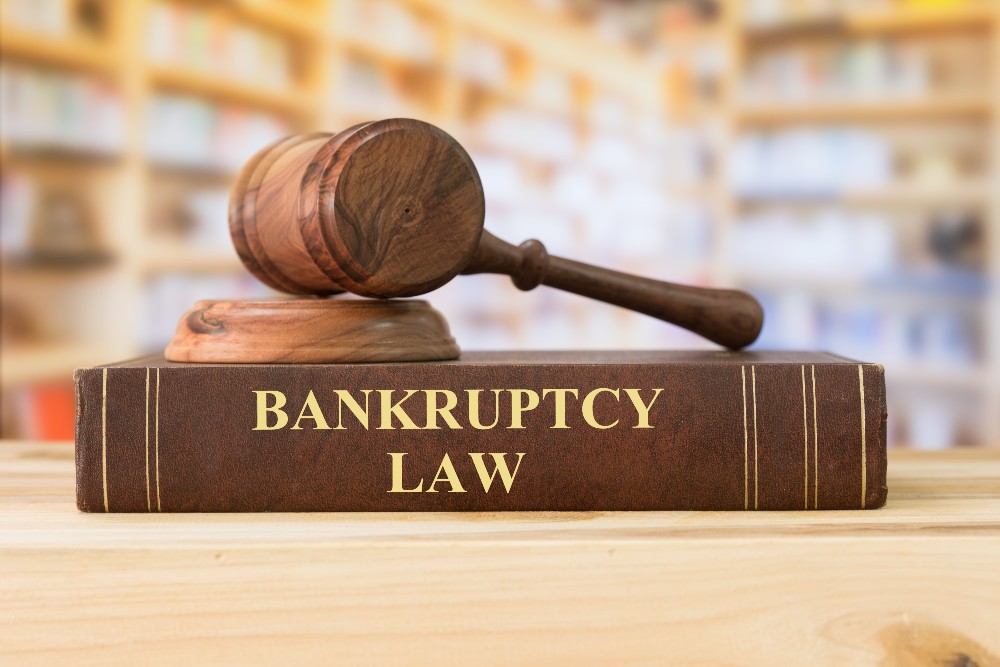Bankruptcy laws may seem complex, but filing for bankruptcy will be a stress-free process if they’re explained correctly. Bankruptcy laws in Georgia and nationwide changed drastically in 2005 with the creation of the Bankruptcy Abuse Prevention and Consumer Protection Act (BAPCPA). With the temporary exception of the CARES Act creation (Coronavirus Aid, Relief, and Economic Security) in 2020, bankruptcy laws have remained unchanged since 2005.
Understanding Bankruptcy and Bankruptcy Laws in Georgia
Bankruptcy is a legal path for individuals, married couples, businesses, and business partners overwhelmed by debt to discharge or reorganize their financial liability. An easy way to explain why bankruptcy regulations and codes need to exist is that they provide structure to regulate the request of dismissing and reorganizing debt. Money becomes a liability when you owe more than you can pay off.
The most common forms of bankruptcy in Georgia are Chapter 7 and Chapter 13.
The creation of BAPCPA in 2005 enforced certain boundaries regarding the ability (and inability) to file for bankruptcy nationwide.
Chapter 7 bankruptcy is liquidation bankruptcy because people can discharge most debts by liquidating non-exempt assets. This option is ideal for debtors with limited or small incomes who cannot repay their debts. BAPCPA made it more difficult for people to file Chapter 7 by creating the Means Test. Also, BAPCPA increased the waiting period for filing bankruptcy a second time.
Chapter 13 bankruptcy is reorganization bankruptcy because it offers people with steady incomes a repayment plan to clear their debts over three to five years. This chapter suits those who wish to retain their assets while repaying their debts. BAPCPA encouraged people to file with Chapter 13 to repay more debt instead of simply having it all erased, as with Chapter 7, via the creation of the Means Test.
Specifics of Bankruptcy Laws in Georgia
- Before you can file for bankruptcy, you must live in Georgia for a minimum of 6 months (180 days).
- Regarding bankruptcy exemptions, people who lived in multiple states before filing must use exemptions from the states they most lived in for 180 days before filing.
- Someone cannot file for Chapter 7 without passing the Means Test, which means your total monthly income for the next 60 months is less than $7,475 or if your income for the size of your household is less than the median in the six months prior to filing.
- Disabled veterans, people with debts from active military service, or people with debts unrelated to consumerism are exempted from the Means Test.
- Debtors cannot file for Chapter 7 if they filed within the last 8 years. (Before BAPCPA, it was only 6 years).
- Chapter 13 requires you to attend a meeting with a bankruptcy judge.
- After filing Chapter 7, the debtor must attend a meeting of creditors (341 meeting). This is where the trustee and creditors are allowed to ask questions about your debts and financial situation.
- After a 341 Meeting, a person must complete a debtor education course in order to receive a debt discharge.
- Filing bankruptcy in Georgia costs $306 (Chapter 7) and $281 (Chapter 13) for individuals or married couples.
- Bankruptcy laws in each state determine which assets you can keep.
- Common bankruptcy exemptions nationwide include homestead, vehicle, personal property, and retirement accounts. In Georgia, someone may exempt up to $21,500 for real estate under a homestead exemption.
- After filing for bankruptcy in Georgia, a debt discharge frees you from the legal obligation of repaying certain debts.
Bankruptcy Laws in Georgia FAQs
- What are the bankruptcy laws in Georgia?
Bankruptcy laws in Georgia are governed by federal law under the United States Bankruptcy Code, with specific state exemptions and requirements.
- How does bankruptcy affect my assets, debts, and future financial stability?
Filing for bankruptcy triggers an automatic bankruptcy stay, halting most collection activities and providing relief from creditors. The impact on your assets, debts, and future financial stability depends on whether you file for Chapter 7 or Chapter 13 bankruptcy. Some assets may be protected through exemptions, while others might be liquidated to repay creditors.
- What are the alternatives to bankruptcy and other debt relief options in Georgia?
Bankruptcy should be the last option after exploring all other possibilities. Alternatives to bankruptcy in Georgia include debt consolidation, debt settlement, and credit counseling, which can help you negotiate with creditors, reduce debt, and create a repayment plan without filing for bankruptcy.
Work with the Best Bankruptcy Attorney in Georgia
The best way to understand bankruptcy laws in Georgia and how they work in your favor, get out of debt, and stay out of debt is to work with an experienced, licensed bankruptcy attorney. Charles M. Clapp is the best bankruptcy lawyer Atlanta has.
Contact CMC Law today to get started and receive a free bankruptcy evaluation.

